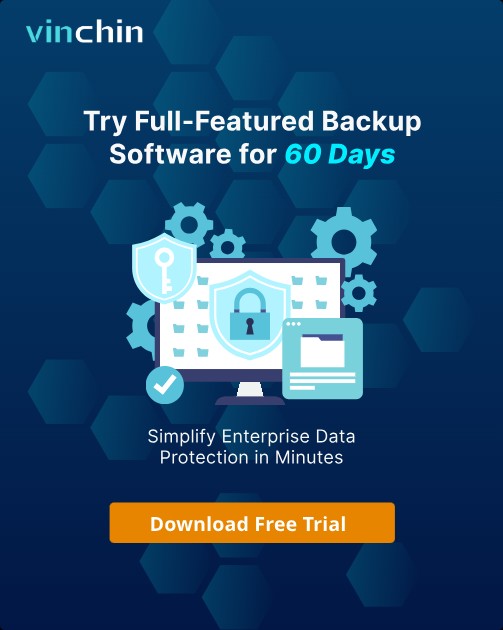-
Agriculture Data Characteristics
-
Agriculture Backup Challenges
-
Common Backup Methods in Agriculture
-
Vinchin's Data Protection Solution for Agriculture
-
Agriculture Data Backup FAQs
-
Conclusion
Modern agriculture is no longer just about soil and seeds. Today, data drives decisions on everything from planting schedules to livestock health. With the rise of precision farming, IoT sensors, and digital compliance, the need for a reliable agriculture data backup solution has never been greater. This article explores how agricultural businesses can safeguard their valuable data, meet regulatory demands, and ensure business continuity—no matter what challenges the season brings.
Agriculture Data Characteristics
The scale of agricultural data is growing fast. Smart farming technologies now generate vast amounts of information every day. Farm management software tracks everything from crop yields to equipment maintenance. Sensor networks monitor soil moisture, weather, and livestock health in real time. Drones and satellite imagery add high-resolution photos and maps to the mix.
This data is not only large in volume but also diverse in format. For example, drone images are often large files, while sensor logs are tabular and updated frequently. Production and yield records are sensitive, as they can impact business decisions and market value. Many farms must also keep data for years to meet compliance or analyze long-term trends. The result? A complex digital landscape that demands careful management and robust backup strategies.
Agriculture Backup Challenges
Building an effective agriculture data backup solution is not without hurdles. One major challenge is large-scale unstructured data. Farms collect everything from spreadsheets to video feeds, making it tough to organize and store efficiently. Another issue is distributed rural locations with unreliable connectivity. Many farms operate in areas where internet access is slow or inconsistent, complicating cloud backups and remote management.
Compliance is another key concern. Regulations often require data traceability to ensure food safety and quality. This means every step—from planting to shipping—must be recorded and recoverable. Meeting food safety standards can require long-term retention and secure storage, adding to the complexity. Finally, the risk of cyberattacks and natural disasters like fires or floods means that data must be protected against both digital and physical threats.
Common Backup Methods in Agriculture
Agricultural organizations use several methods to protect their data. Local disk backups are a traditional choice, storing copies on external hard drives or on-premises servers. This method is simple and fast but can be risky if hardware fails or is damaged.
Many farms are turning to cloud-based backups. These solutions store data offsite, making it accessible from anywhere with an internet connection. Cloud backups offer strong protection against local disasters and can scale as data grows. However, they depend on reliable connectivity, which is not always available in rural areas.
To balance these needs, some adopt hybrid approaches. This method combines local storage for quick access and cloud backups for disaster recovery. Hybrid solutions can offer the best of both worlds—speed and resilience. The choice often depends on the farm’s size, location, and regulatory requirements.
Vinchin's Data Protection Solution for Agriculture
Vinchin has already delivered data protection solutions to numerous enterprises in the agriculture industry. Its platform supports compatibility with over 19 virtualization environments—including VMware, Hyper-V, Proxmox—and extends coverage to physical servers, databases, as well as both on-premises and cloud file storage systems—meeting diverse IT architecture needs across modern farms.
If you need migration capabilities during upgrades or expansions, Vinchin Backup & Recovery offers flexible full-system migrations across any supported virtualized environment or physical/cloud host—making transitions smooth for agricultural operations.
For critical workloads running on virtual or physical machines, Vinchin provides real-time backup, replication features with automated failover—helping reduce RPO (Recovery Point Objective) and RTO (Recovery Time Objective) so your essential farm processes stay resilient even during disruptions.
To guarantee backup reliability at all times: Vinchin performs automatic integrity checks of backup files; it validates recoverability within isolated environments; this ensures your farm’s vital records remain restorable when needed most.
Building a highly resilient disaster-recovery system becomes easy—with automated retention policies; archiving/backups sent directly to cloud storage; plus support for remote replicas or DR centers—all designed so you can rapidly restore critical operations after any event.
With its simple B/S web console interface plus wizard-driven workflows—even non-technical users quickly create efficient backup jobs without hassle.
A 60-day free trial lets you test all features risk-free; comprehensive documentation plus patient support engineers help you deploy smoothly—so you protect your agriculture business’s digital assets efficiently from day one.
Agriculture Data Backup FAQs
Q1: What happens if my farm loses internet during a backup?
A1: Hybrid solutions allow local backups to continue, syncing with the cloud once connectivity is restored.
Q2: How long should I keep my farm’s production data?
A2: Retention periods depend on compliance needs, but many regulations require several years of secure storage.
Q3: Can I recover data after a hardware failure in the field?
A3: Yes, with a robust backup solution, you can restore data from local or cloud copies to minimize downtime.
Conclusion
A strong agriculture data backup solution is essential for protecting farm operations, meeting compliance, and ensuring business continuity. Vinchin stands ready as your trusted partner, offering reliable, agriculture-focused data protection for every season.
Share on:







